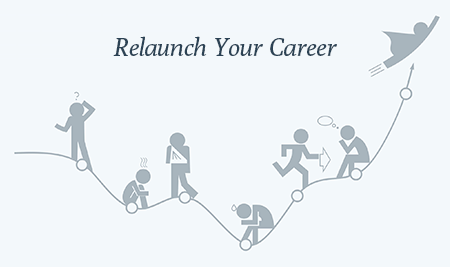Anytime you make a major change in your life, you’re going to face some self-doubt. Especially among career changers, stepping away from a traditional, linear career means can’t always fall back on years of experience in a role, a steady track record of promotions, or a relevant set of experiences that demonstrate the types of skills you’re now trying to sell to others.
In my own life, I’ve had various experiences where had to start over. Leaving my career in medicine behind to start a new path in business. Leaving the United States behind to start a new life in the UK. Or leaving my corporate marketing job behind to start my own independent business. In each case, I felt like I was starting over in some ways. And whenever you’re starting over, I think you’re especially susceptible to doubting your own abilities.
Your psychology matters

Self-doubt can be paralyzing. I’ve experienced it myself many times in my career. Sometimes, people refer to this as imposter syndrome. What I’ve noticed is that during those times when I doubt my abilities, or constantly question myself, I don’t really make the kind of progress I want to. On the other hand, during those moments when I’ve believed in myself, I’ve actually accomplished the most.
Now obviously, belief alone is not enough when it comes to successfully executing a major career change. Doing research, rebuilding a strong professional network, understanding your personal brand, being able to communicate your unique value in an effective, compelling fashion, and equipping yourself with the necessary, prerequisite skills in order to break into the industry you’re targeting are all critical components of enabling the kinds of changes you want for your career.
Psychology is half the battle toward achieving your goals.
However, over the past three years since starting my own business, I’ve discovered that psychology is half the battle toward achieving your goals. If I haven’t convinced myself I absolutely can do the thing I’m trying to do, you can bet that persuading others is nearly impossible. Before you can convince others of the value you bring to the table, the first step is to convince yourself.
This reminds me of a fantastic clip from Tony Robbins about the power of belief:
The point he makes very well here is that beliefs lead to associated actions that fuel results, so if you can believe in yourself, that’s the foundation of achieving what you desire, creating a virtuous cycle.
Three things I do to manage my own self-doubts

Given that managing your own internal psychology is so important to achieving your goals, being able to consistently and effectively deal with self-doubt can be extremely useful. Here’s what I do:
- I start by getting very clear about the future I desire for myself. What do I want my life look look like? How do I want to be spending my time? What’s what impact do I want to have? What will my relationships look like, both personally and professionally? I try to really hone in on my desired future, so I can know exactly where I’m trying to take my career.
- I behave in ways consistent with the person I want to be. Instead of using the person I have been for the person I currently am as a reference point, I jump ahead to the future, and think about how my future self would be acting, assuming he already had all those things that I’m trying to achieve. The only way to achieve that desired outcome is to actually act in ways consistent with someone in that target situation.
- I remind myself how important it is to believe. As touchy-feely as it sounds, I really do try to remind myself everyone needs a pep talk every so often. Everyone needs a fresh injection of motivation every so often. Everyone needs a confidence booster every so often. So I try to remind myself how important it is to be my own biggest cheerleader. Sometimes, just reminding myself I need to believe in myself can make a positive difference to my overall trajectory.
Self doubt is normal

If you’ve ever experienced self-doubt, rest assured it’s completely normal to question your own abilities. Questioning yourself it Is inevitable whenever you’re trying to achieve something you’ve never done before. At the same time, the onus is on each of us to make sure we don’t get in our own way and self sabotage our own progress.
 If you want to read a little bit more about how I’ve dealt with imposter syndrome and self-doubt, be sure to check out my Fast Company article, How I Stopped Feeling Like A Fraud After Quitting My Job To Work For Myself.
If you want to read a little bit more about how I’ve dealt with imposter syndrome and self-doubt, be sure to check out my Fast Company article, How I Stopped Feeling Like A Fraud After Quitting My Job To Work For Myself.
Enjoyed this article?
You can get my future articles on career change and personal branding sent straight to your inbox by registering below! You’ll also receive access to my Career Change & Personal Branding Resource Hub after you sign up.




Thank you very much for this dose of inspiration. Just now, I wrote your three tips in a blank sheet. Starting tomorrow, I will list my ideas every morning to build up my desired future and refine it until it becomes crystal clear.
Jean, I’m so happy to hear you found this useful. I hope those three ideas help you stay focused on where you want to take your career! Good luck!
Thank you for these insights, Joseph. I particularly like the point about behaving in ways consistent with the person I want to be. It’s easy to fall back to old habits or to hang on to previous accomplishments, whether its relevant or not to the direction you want to go. Insightful as always, it will help me to be more mindful through my own transition. Thank you!
Mark, glad to hear you found this article useful. Falling back into old habits, narratives, and routines definitely involves less friction than pushing forward and making the leap to modify your narrative, especially if you’re making a career change. It’s something I have to remind myself of all the time. Best of luck with your transition!